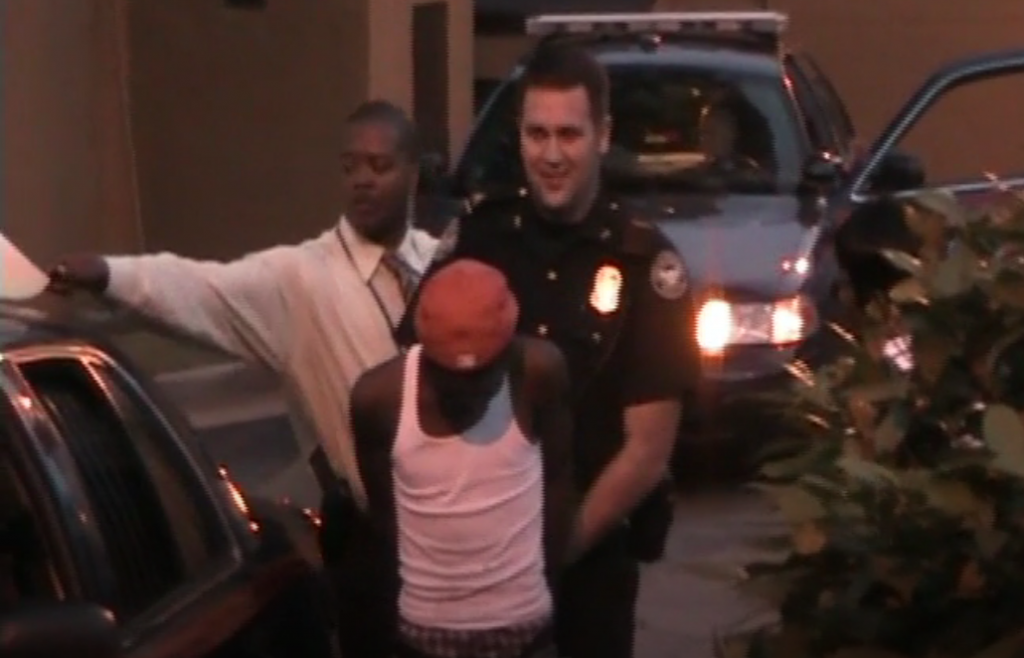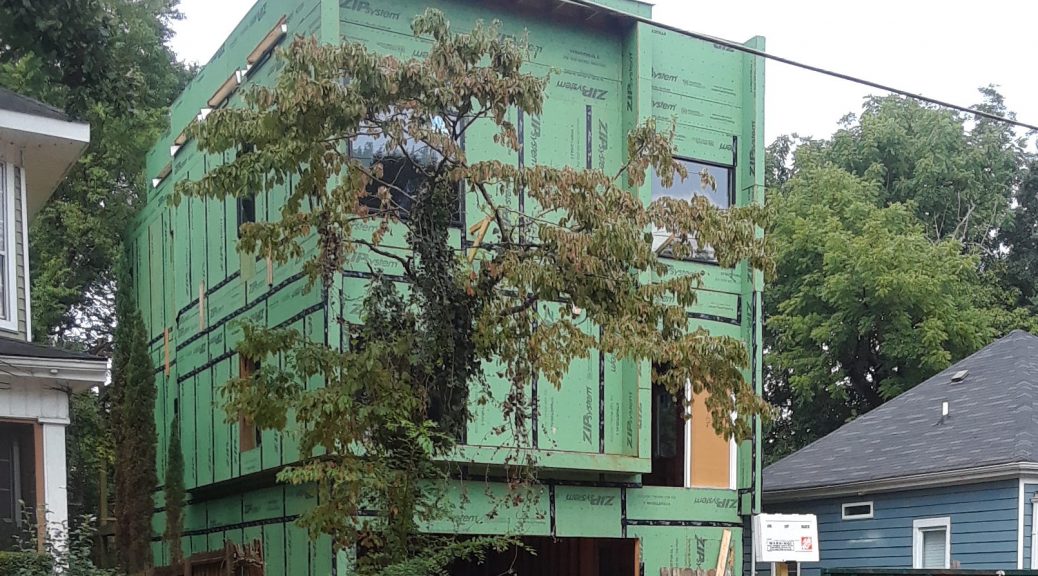Edgewood, one of the first black suburbs of Atlanta, has been home to many poor and black families for generations. But now the neighborhood has been identified as valuable real estate, and wealthier, whiter people have begun grabbing up property to develop in hopes of making a great deal of money. In the past couple years, just on the five-block stretch of Mayson Avenue where the Teardown is located, about a dozen new, expensive properties have sprung up; meanwhile smaller, lower income housing is demolished to make way. The face of the neighborhood has been changing as property values skyrocket and the low-income neighbors of color have found it harder to afford to stay.
Aggressive Policing: A Tool of Gentrification
Along with increasing housing taxes and rent prices, gentrification has been driven by an increased police presence, and enforcement of certain laws against certain people. Neighbors of color report having difficulty walking 6 blocks to the MARTA station without facing detention and harassment by police. Black kids, some as young as 11 and 14, have been stopped and frisked by police under suspicions of drug or gang activity with very flimsy support. Roadblocks are a common sight in the neighborhood, with unclear explanations for what they are looking for why they are needed. Sometimes police do presence patrols, parking or standing in a visible area to show a police presence and communicate a message that the neighborhood is being heavily policed.
Police Answer to Gentrifiers
This increase in police presence and activity is no mistake; it is no coincidence with the rising property values and developing high-income properties. Wealthy property owners and developers communicate closely with police departments and zone 6 police and demand ever-increasing police pressure on the poor people of color in the neighborhood. They believe that people of color being visible in their day-to-day activities drives down property values, so they pressure police to make it more difficult for black neighbors to be out and about. Police commonly disrupt community events put on by black people, for example a community barbecue that has been an Edgewood tradition for decades, Edgewood day, was met with heavy police harassment. The next day another neighborhood event aimed at giving backpacks to school children was disrupted by police.

Gentrifiers are very clear on what their purpose is in the neighborhood and who they need to get rid of two enact it. Police are one of their most important tools in bringing this vision about. Members of the Teardown and Copwatch of East Atlanta and our friends attend “neighborhood planning unit” and “Organized Neighbors of Edgewood” meetings, so we are privy to conversations between wealthy property owners and police that are not usually made public. We have heard meeting attendees ask the police why we can’t build a wall around the low income housing complex called Edgewood Court. They frequently demand more security cameras in public spaces and other law enforcement technology such as license plate readers on cars. Police encourage attendees to call 911 on gatherings of people in yards and on street corners. They talk about use of databases that help them predict crimes, and they were port on the ways in which they are meeting the demands of the gentrifiers to crack down on community activities by black people. For example a house that frequently posted barbecues in the yard was discussed as being a problem area, and police explained how they were using city ordinances and quality of life crimes to repeatedly cite and arrest attendees of these events. Copwatch documented some of these efforts, for example baseless searches, and arrests and detentions based on flimsy reasoning like jaywalking. We also documented when the house was raided by about 50 masked SWAT team officers, who searched the entire place but found nothing illegal in the house.
Gentrifiers have a lot of power and influence over the police, and they know it and are not afraid to use it. Police know it too; these are the people they answer to.
So what are we going to do?
One way to combat this is to attend the community meetings where they are making these demands and push back against them. We can help facilitate attendance by the people most affected and targeted by the police, by offering rides, information about time and location, and support when the meetings are demoralizing or threatening.
Copwatch is another tactic used to push back against unfair an overzealous policing. Filming the police limits their ability to break the law and get away with it. Documenting and establishing patterns of harassment against poor people of color that are not applied against wealthy and white members of the same neighborhood can help us to make legal challenges. But more importantly, it can help us to inform ourselves about the ways in which our neighborhoods are under attack so that we can coordinate to fight back.
Our Community Ties Make Us Strong
One of the most important things that we can do is to form bonds with our neighbors so that we know how and when we need to support each other. If a landlord is not taking care of a mold problem, or is suddenly jacking up the rent, we need to be able to come together and figure out ways to help keep each other from being pushed out of the neighborhood. Dealing with increased rents can be overwhelming when you are isolated, but we can offer projects such as the free store and the food distro to offset some of those costs. The friendships that we build with our neighbors allows us to reach out to each other in times of need and conflict so that we can help each other keep fighting–so we can all keep living.

also, so much for the “wood” part of EDGEWOOD because the bitch developers have apparent free reign to cut any trees they want and get a tiny fine 🙁